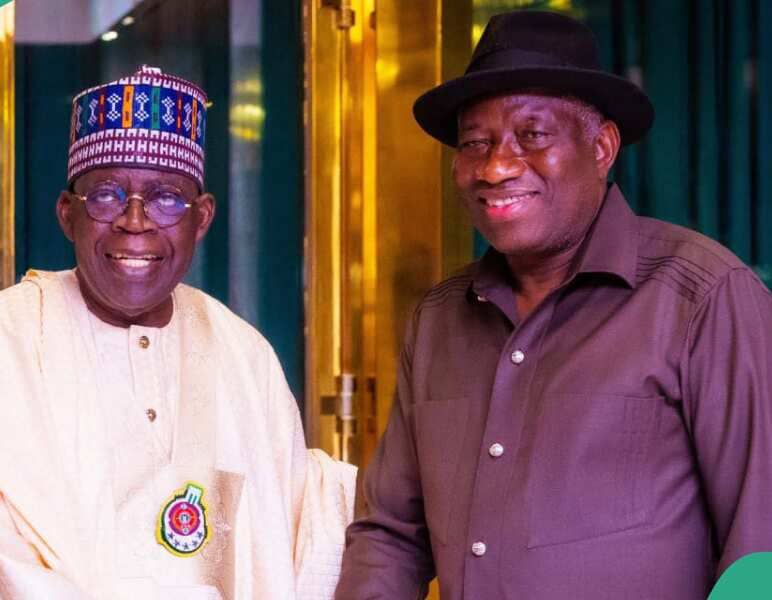Former Nigerian President, Dr. Goodluck Jonathan, has sounded a cautionary note on the dangers of ethnic-based politics in Nigeria, highlighting its potential to erode unity and democracy in the country. Speaking at the 25th Democracy Day Public Lecture in Abuja on Tuesday, June 11, Jonathan emphasized the need for transformative and inclusive politics, urging political leaders, including Tinubu, to prioritize national unity over divisive sentiments.
Addressing the audience, which included key political figures and stakeholders, Jonathan expressed deep concerns about the escalating trend of ethnic and religious politics, warning that it could undermine the fabric of Nigerian society. He stressed the importance of fostering a political landscape that transcends regional and religious divides, advocating for a more cohesive and harmonious approach to governance.
Referring to the contentious nature of elections in Nigeria, Jonathan highlighted the detrimental impact of the prevailing “winner-takes-all” mentality, which often leads to post-election disputes and litigations. He described the current state of affairs as embarrassing, emphasizing the urgent need for electoral reforms to ensure fairness and transparency in the democratic process.
Drawing attention to the national anthem, Jonathan underscored the significance of its message, particularly the aspiration to leave behind a legacy of unity and progress for future generations. Quoting the anthem’s second stanza, he emphasized the imperative of building a democracy free from the shackles of ethnicity and religion, emphasizing that such divisions only serve to weaken the nation’s foundation.
Jonathan urged political leaders, including Tinubu, to embrace a more inclusive and forward-thinking approach to governance, emphasizing the importance of prioritizing the collective welfare of all Nigerians. He cautioned against the prevalence of “do-or-die” politics, noting that such a zero-sum mentality only exacerbates divisions and impedes national development.
Reflecting on the role of the judiciary in resolving election disputes, Jonathan lamented the lack of confidence in the fairness of the judicial system, noting that many politicians resort to litigation due to perceived injustices. He called for reforms to enhance the independence and impartiality of the judiciary, stressing the need for transparent and timely resolution of electoral disputes to restore public trust in the electoral process.




